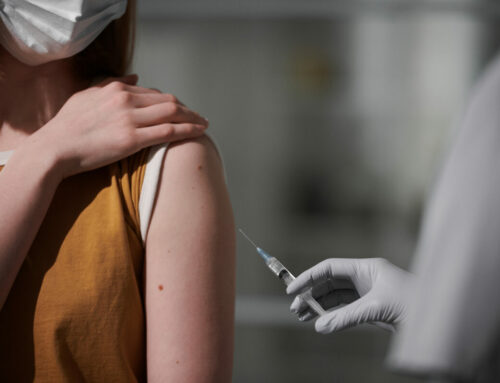A Guide to Vaccinations for Mexico Travel
April 26, 2023
The best way to protect yourself and your family from unfortunate illnesses that can ruin your trip is to get the appropriate vaccines before starting your journey. In this article, we discuss the recommended vaccinations for Mexico travel and where you can get them.
We will also talk about some other common diseases you may encounter if traveling there and preventative measures you can employ. Additionally, we will list areas in Mexico that the Canadian Government deems unsafe due to high crime rates. So, let’s get started with the vaccines.
Recommended Travel Vaccinations for Mexico
It is recommended for every resident of Canada to be up to date on their routine immunizations before traveling to Mexico or any other part of the world. Besides regular immunizations, you should take particular care to get vaccinated for:
Hepatitis A
Hepatitis A is an infection of the liver caused by the hepatitis A virus (HAV). Hepatitis A is transmitted by ingesting the virus, usually through close personal contact or eating or drinking contaminated food or water. The hepatitis A virus lives in the blood and fecal matter.
The most common mode of transmission of HAV is through food contaminated with fecal matter, even in microscopic amounts. The virus can survive freezing and temperatures of up to 85 degrees Celsius. Other common modes of transmission are through sexual contact or sharing needles with an infected person.
The hepatitis A vaccine protects you from the disease.
Hepatitis B
Hepatitis B is an infection of the liver caused by the hepatitis B virus (HBV). Hepatitis B can be an acute disease but may develop into chronic hepatitis B for which there is no cure. Hepatitis B is a blood-borne pathogen. It is most commonly transmitted through unprotected sexual contact, contaminated needles, or other contaminated items.
The hepatitis B vaccine is not the same as the hepatitis A vaccine. The hepatitis B vaccine is one of the recommended vaccinations for Mexico.
Rabies
Rabies is a viral disease that attacks the central nervous system. It is spread to humans through the saliva of infected animals. Rabies is almost always fatal if a person starts developing symptoms.
Animal bites are the most common cause of rabies in humans, although it can also spread if the saliva of an infected animal enters your bloodstream through a scratch or broken skin. Rabies is preventable with the rabies vaccine and it is one of the recommended vaccines for traveling to Mexico.
Additionally, even if you are fully vaccinated against rabies, you will still need booster doses if you believe you are bitten by an infected animal. In Canada, two doses are given as post-exposure treatment to fully immunized individuals that have been exposed to rabies.
COVID-19
Vaccines against COVID-19 are part of the recommended vaccinations for Mexico travel. However, as of May 2023, COVID-19 vaccines are not mandatory to enter Mexico. There are also no additional COVID-19-related restrictions, such as the need for antigen or PCR tests.
Influenza
Flu or influenza vaccines are also recommended for people traveling to Mexico. The influenza virus exists during the entire year, but the flu season in Mexico is from October to March. Flu activity typically peaks between December and February. If you are traveling to Mexico during peak flu season, it is recommended you get this vaccine.
Measles
As a result of the COVID-19 pandemic, many countries have postponed regular vaccinations against measles. Consequently, measles outbreaks are occurring more frequently. Vaccination against measles is part of routine immunization, however, you should confirm that you:
- Are immune to measles through laboratory testing (e.g. through blood tests)
- Have received 1 dose of the vaccine if you were born before 1970
- Have received 2 doses of the vaccine if you were born after 1970
Additionally, traveling infants may be vaccinated against measles starting from 6 months of age. However, infants that are vaccinated before they turn one must restart the standard 2-dose vaccinations schedule on or after their first birthday.
Typhoid
Typhoid is a life-threatening bacterial infection caused by the salmonella bacteria. Typhoid fever is typically transmitted through contaminated food or water, although it can also be transmitted through close contact with an infected person.
Typhoid vaccines can be administered as independent vaccines or as combination vaccines against hepatitis A and typhoid. Typhoid vaccines are not 100% effective and lose effectiveness over time. Contact your medical provider for advice on whether you need a typhoid vaccine as part of your travel vaccinations for Mexico.
Traveler’s Diarrhea
Traveler’s diarrhea, as the name suggests, is one of the most common diseases affecting travelers. It is spread through food and water contaminated with certain bacteria. You can protect yourself by taking the oral vaccine against it. The same vaccine also protects against cholera, another bacterial infection that attacks the digestive system. It is also recommended that you bring antibiotics for traveler’s diarrhea if you are traveling to Mexico.

Recommended Vaccinations for Mexico, Summarized
To summarize, besides routine immunizations, the following travel vaccines for Mexico are recommended:
- Hepatitis A
- Hepatitis B
- Rabies
- COVID-19
- Influenza
- Measles
- Typhoid
- Traveler’s diarrhea
Illnesses Common in Mexico for which There Are No Vaccines
Mexico has seen an increase in malaria, zika, denge, and chikungunya in recent years. These diseases are transmitted through mosquito bites. There are no vaccines for malaria, zika, denge, or chikungunya.
The best way to avoid these diseases is to take precautions against mosquito bites, such as using effective insect repellent, wearing clothes that cover most of your body, and using mosquito nets. It may also be prudent to bring anti-malarial medications with you on your trip.
Food and Water Safety Precautions
Many of the illnesses we talked about are spread through contaminated food or water. So, you should utilize some basic food and water safety precautions if you are traveling to Mexico:
- Avoid raw or rare meat and fish
- Avoid fresh produce unless you peel it yourself
- Avoid unpasteurized dairy products
- Drink water only from commercially sealed bottles or if it is boiled or disinfected (including ice)
- Wash your hands before preparing food or eating or use an alcohol-based hand sanitizer
Places to Avoid Due to High Crime Rates
The focus of this article is to discuss vaccinations for Mexico travel, but we should also note that the Government of Canada has designated certain places in Mexico as high-risk due to high crime rates. It is recommended that the following areas or parts of these areas are avoided for non-essential travel:
- “all Chihuahua
- all Colima, except the city of Manzanillo
- all Coahuila, except the southern part of the state at and below the Saltillo-Torreón highway corridor
- all Durango, except Durango City
- all Guerrero, except the cities of Ixtapa/Zihuatanejo and Taxco
- in Guanajuato
- Highway 45 between León and Irapuato
- the area south of and including Highway 45D between Irapuato and Celaya
- all Michoacán, except the city of Morelia
- in Morelos
- the Lagunas de Zempoala National Park and surrounding areas
- the municipality of Xoxocotla
- in Nayarit
- the area within 20 km of the border with Sinaloa and Durango
- the city of Tepic
- all Nuevo León, except the city of Monterrey
- all Sinaloa, except the city of Mazatlán
- all Sonora, except the cities of Hermosillo and Guaymas/San Carlos and Puerto Peñasco
- all Tamaulipas
- all Zacatecas”
Get Vaccinations for Mexico in Toronto
You can get travel vaccines for Mexico at Everest Whole Health Pharmacy in Toronto. Schedule an online appointment and get vaccinated at your convenience. We also carry other travel medication that you should have with you at all times. If you have any questions regarding vaccines or medicine, feel free to contact us to talk to an expert.
We would also recommend that you register with the Government’s Registration of Canadians Abroad service to be informed of any emergencies that might occur. Have a safe trip!






